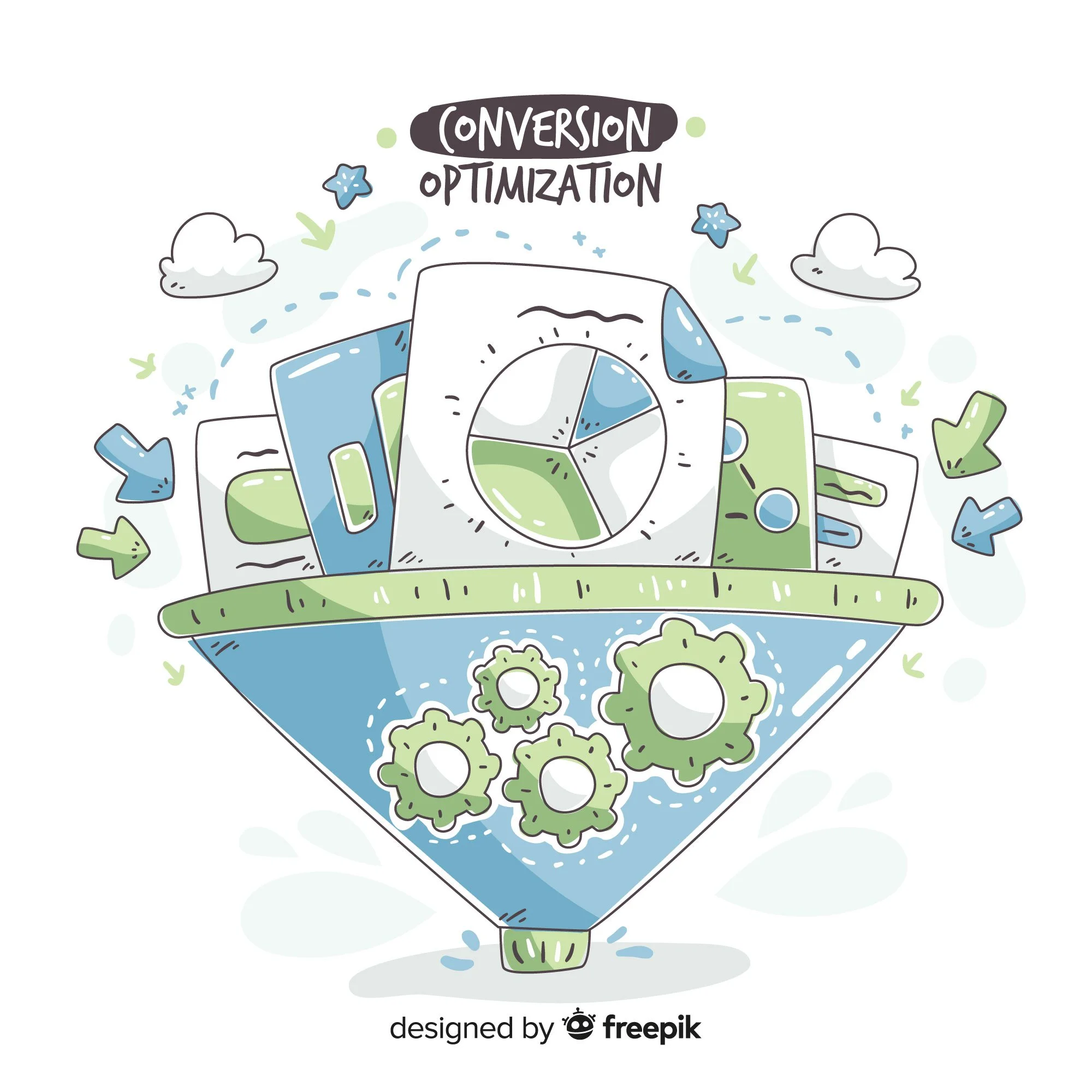The Psychology of Choice: How Your Business Can Leverage Customer Decision Making
Consider two competing websites in the same niche. One presents three clear choices, while the other bombards you with 15. Which site is more likely to win your business? While it might seem contradictory, the streamlined site with fewer options is far more likely to convert visitors into paying customers.
We often assume that offering an abundance of options enhances the customer experience, but an excess of choices can be paralyzing. This concept, known as the “psychology of choice,” suggests that as options increase, our ability to make a decision decreases.
How to Consistently Exceed Customer Expectations and Build Unshakeable Trust
We’ve all heard the phrase, “underpromise and overdeliver.” Unfortunately, I often see businesses that tend to “overpromise and underdeliver,” failing to meet customers’ expectations.
For me, it all comes down to trust. Can I rely on a company to consistently meet and exceed my expectations? As entrepreneurs, this can be a difficult question to confront. However, if you’re unsure how to respond, it may be time to reflect on your practices.
What It Takes to Be an AI-Ready Sales Leader Today
Few topics dominate executive agendas like AI, and its influence on sales is only beginning to unfold.
From forecasting and pipeline management to pricing and customer engagement, AI is already changing how revenue teams work.
AI is high on leadership agendas, but that focus doesn’t always translate into readiness on the ground. For sales organizations, this gap shows up fast—tools get rolled out, dashboards multiply, but behaviors don’t change.
Try Using These 3 Tips From a Psychologist to Manage Workplace Stress
Workplace stress is at an all-time high, and it’s not staying at the office. Employees are bringing their fears and frustrations into their home lives, and it’s not healthy for family dynamics or the businesses they work for, a clinical psychologist says.
The latest Occupational Safety and Health Administration (OSHA) data shows that more than 80 percent of U.S. workers currently experience workplace stress. And more than half of these employees say these stressors are impacting their home lives. People said their chief work-related worries remain job security in an uncertain economy and concerns over their job performance.
What Does Organizational Resilience Look Like?
Workplaces invest a lot of resources focusing on employee resilience. They try to hire for it through skillfully crafted interview questions. They pay trainers to teach employees how to bounce back from stress and crisis. Executives even use the term as a rallying cry during corporate townhalls, to encourage employees to push through challenging times.
However, the reality is that there are two facets of a truly resilient workplace. Employee resilience, yes. But organizational resilience is even more important.
How to Beat Procrastination and Get Things Done at Work
Everyone struggles with procrastination at some time or another. Whether you're navigating the distractions of a home office, the interruptions of a bustling workplace, or the shifting dynamics of a hybrid schedule, procrastination can turn any work environment into a time management challenge if you're not careful.
But what if you could stop putting things off? What if you could count on yourself to plan your work and work your plan, no matter how overwhelmed or undermotivated you're feeling?
The State of Sales in 2026: AI Raises the Bar, but People Still Win
Most people begin the new year fresh. Not sales organizations. In 2026, they’re carrying forward economic uncertainty, aggressive growth expectations and a wave of AI that has already reshaped how sellers work.
“The new norm is uncertainty,” said Erik Fowler, chief revenue officer at Allego, provider of a sales enablement platform, during a recent webinar on the state of sales. “We still have aggressive growth expectations, we still have economic pressures and budget concerns, and we have AI that we all need to rapidly adopt and figure out how it changes our business.”
The Psychology of Sales
To succeed in selling, it is vital to understand who your customers are and what motivates them to spend their money. Psychology in selling involves zeroing in on customers’ emotional needs. Putting yourself in a customer’s shoes helps manage your sales pitch. Most individuals buy based on emotion rather than logic. There are six typical emotional responses to a sale and understanding these psychological attitudes relates directly to your marketing efforts.
How to Automate Your Lead Funnel — Without Losing the Human Touch
Automation has a branding problem. Most founders want systems that run without depending on them, but somewhere along the way, “automated funnel” became synonymous with cold DMs, sales-y email sequences and the feeling that no actual human is paying attention.
The good news is this isn’t an either-or problem.
You can automate your lead funnel and still make people feel seen, supported and excited to work with you. In fact, when done well, automation is what creates space for more human connection.
Is Emotional Intelligence Overrated in Leadership — or the Secret We’re All Ignoring?
We often hear that leadership is about vision, strategy, and results. While that’s true, the leaders who truly stand out today are the ones who also lead with heart. That’s where emotional intelligence in leadership becomes a game-changer.
Simply put, emotional intelligence in leadership is about understanding and managing emotions—both your own and those of the people around you. It’s about leading with empathy, staying calm under pressure, and creating trust across teams.
3 Ways CEOs Can Build a Following
Name many of the top traits that come to mind when you think about a successful CEO and words like strategic, emotionally intelligent, and flexible may fit the bill.
But according to experts, one of the biggest indicators of success for CEOs—first-time leaders and veterans alike— is their ability to build a following, and fast. That’s become a critical factor in CEO searches in recent months as more employees are “job hugging” and staying put, while the rate of CEO turnover continues to rise, thanks to pressure to perform amid market volatility and geopolitical uncertainty.
How a Work Buddy Can Improve Your Well-being and Your Workplace
I was 16 years old when I got my first “real” job at a local Jack-in-the-Box. It was not a great gig, for sure, working over a hot grill and dealing with rude, demanding customers. But I was saved from misery by my work buddies—friends who’d crack jokes, commiserate, and pitch in if I fell behind.
Since then, having a work buddy has always been important to me, which is why I’ve cultivated friendships throughout my work career. Those special friends have helped me maintain my focus and commitment to the job and increase my sense of safety and belonging.
4 Critical Insights for ASEAN Businesses from the 2025 State of Service Report
Customer experience is the #1 priority for many of ASEAN’s service leaders, yet keeping up with changing customer expectations remains their toughest challenge. How exactly do you meet increasing demands for 24/7 support and tailored interactions while also contending with limited resources and high costs?
These challenges and how to solve them are explored in our latest State of Service report, based on learnings from 6,500 service professionals, including respondents from Indonesia, the Philippines, Singapore, and Thailand.
Still Making Decisions Without AI? You’re Leaving Serious Money on the Table
Chief revenue officers — a demanding title with a hefty responsibility to run an organization optimally. From in-house collaborations to leveraging data in decision-making, CROs handle the nitty-gritty of cost operations above and beyond.
The real challenge that can hinder their growth is the lack of up-to-date technological integrations. With the advancement of emerging platforms, we can equip the existing systems with exceptional analytical data processing power hubs. These hubs can perform complex tasks and are even a no-brainer for CROs.
9 Ways to Build a Positive Sales Culture
Sales teams operate at their best when each team member is motivated, enthusiastic and knowledgeable about the products and services they’re selling. That attitude isn’t something that just happens by chance, but rather is cultivated by managers and employers. Building a better sales culture involves a deliberate strategy and understanding what motivates your salespeople, and it can be a vital aspect of your business’s success.
Influence vs. Authority: What Truly Moves People to Follow Your Lead
Leadership grows clearer when you grasp how influence vs authority shapes the way people respond to your direction. Many leaders feel the push to deliver strong outcomes and recognize that real commitment rises when they build trust, connection, and shared purpose with their teams.
In the Maxwell Leadership Podcast episode “Leader Change: From Position to Influence,” Perry Holley and Chris Goede explain how leadership strengthens when influence sets the tone for the relationship.
Avoiding Leadership Traps
Leadership is fundamentally an ability to create synergy or an aligned mission; it’s developing stewardship where people feel strong enough to disagree, brave enough to fail, and supported enough to grow. Leadership is about creating a space where people feel safe, appreciated, and can see a glimpse of the future. Good leaders create careers, not just jobs.
How a Work Buddy Can Improve Your Well-being and Your Workplace
At the start of every new year, many of us think about how to make our lives better going forward. Perhaps we want to lose weight or stop drinking or stay off of our cell phones. If only we had more willpower, the thinking goes, we could meet our goals and become happier and healthier people.
But a new study suggests that we could have that backwards. Instead of self-control or willpower leading us toward greater well-being in the future, greater well-being increases our ability to have more self-control for meeting our goals.
Why Customer Trust Is An Important Measure Of A Great Customer Experience
Lately, I’ve been writing a lot about the link between trust and the customer experience. I’ve come to the conclusion that if a customer doesn’t trust you, it doesn’t matter how great your customer service or customer experience (CX) is. Customers expect you to deliver on your promises. If you promise overnight delivery, it better show up the next day. If you promise to reach out to them in an hour, you must do so. The moment you don’t do what is promised and/or expected, you start to lose the customer’s trust.
Want to Increase Sales? Start With This Weekly Report.
Rarely do I meet a business owner who isn’t looking to increase sales. There’s never quite enough work, right? The backlog only stretches so far — and beyond that lies the abyss.
The truth is, there’s no magic bullet for growing revenue. But there is one report you should be reviewing every single week that will dramatically help: the pipeline report. Do you have one? You should.





















